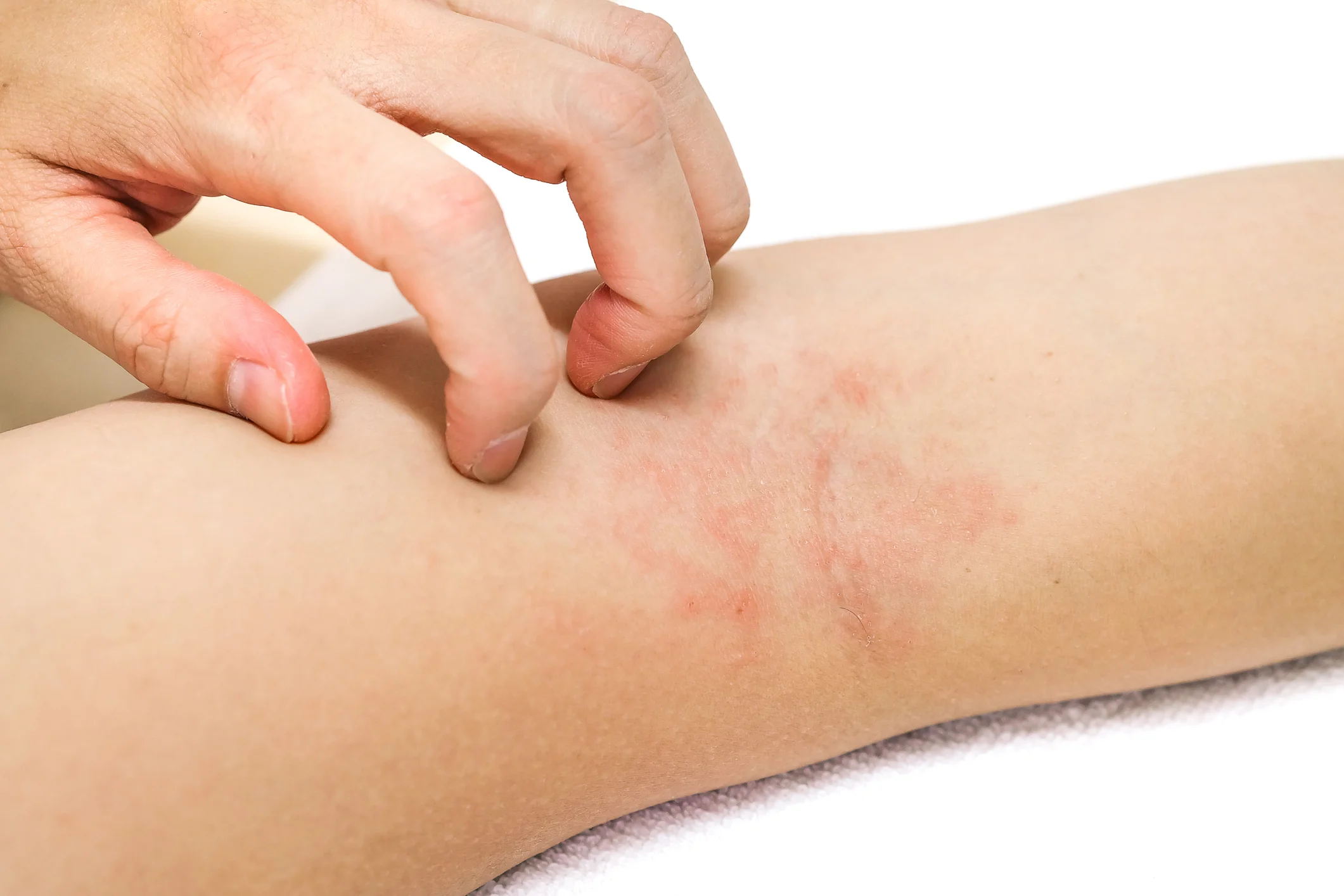Psoriasis is a chronic inflammatory disease of the skin characterized by the appearance of scaly reddish lesions, preferably on the elbows, knees, and scalp, which can affect nails and joints. It is not a contagious or hereditary disease, and although there is a genetic predisposition in people who suffer from it, other triggers are usually involved. It originates due to a dysfunction in the immune system and can appear anywhere in the body. It manifests itself in outbreaks with periods of improvement and remission or worsening, but the disease develops in a particular way in each patient. Sometimes it lasts a lifetime. Although it does not carry a life-threatening risk, this disease has significant repercussions on the patient’s physical, emotional, sexual, labour and economic environment. It significantly decreases their quality of life, with an impact similar to diabetes, arthritis, or chronic obstructive pulmonary disease. Let’s learn all about this disease!
Why Has It Appeared to Me?
The cause of Psoriasis is unknown. We know that it is a disease that is determined, in part, by a genetic predisposition. Different environmental factors can trigger Psoriasis’s appearance in these predisposed people, such as some infections (tonsillitis), emotional stress, certain medications, trauma, etc.
Is it Contagious?
Many myths surround this pathology: is Psoriasis contagious? Does it appear at any age? Is it “just” a skin disease? Is Psoriasis curable? As we know that there are many truths and lies around Psoriasis, we solve them in this post: No. Psoriasis is not contagious, nor can it be transmitted to third parties by any means.
Can I Pass It to My Child If I’m Pregnant?
Since Psoriasis is a disease in which specific genetic factors often participate, families with a greater predisposition to develop it. In any case, it is not possible to know for sure, nor to calculate the risk of having a child with Psoriasis.
Are All Psoriasis the Same?
No, Psoriasis can present in different ways, even in the same individual. Generally, there are reddish plaques with thick white flaking of very diverse size. Although the most common locations are the elbows, knees, and scalp, it can appear anywhere on the body, including the nails, palms and soles, folds, or genitalia. Occasionally, Psoriasis may have pustules (uninfected pimples of pus) on the reddish plaques. The extension is also highly variable between patients, being localized and mild in most (70%), and less frequently moderate (20%) or very extensive (10%). There is a form of Psoriasis called “drops” or guttate Psoriasis, which is characterized by the appearance of small plaques mainly on the trunk and extremities, usually in young people after tonsillitis. It can often be the onset form of the disease. Around 10% of cutaneous Psoriasis can present joint symptoms (pain, inflammation of the joints [fingers, wrists, elbows, etc.]). These symptoms can appear before cutaneous Psoriasis or, even in some cases, be the only manifestation of the disease.
Is Psoriasis Serious?
Cutaneous Psoriasis is a benign disease that is not life-threatening. It can sometimes itch and more rarely cause pain. The most important thing is that it usually affects patients’ quality of life, especially in the most visible and/or extensive forms, which can sometimes cause a significant psychological impact.
What About The Cure?

Psoriasis is a chronic pathology, so it currently has no cure. Psoriasis can be permanently present on the person’s skin or have periods with flare-ups, usually triggered by external factors, such as weather or stress. However, the pathology is chronic; that is, it does not disappear but coexists with the person. For this reason, it is crucial to talk to your dermatologist to recommend the best way to deal with it so that you can have a good quality of life, despite living with Psoriasis.
Does the Sun Improve Psoriasis?
The sun has an anti-inflammatory effect, so it generally improves Psoriasis and can sometimes make it disappear. Still, a small group of people with Psoriasis do not do well and, conversely, it can worsen. The sun has to be taken in a sensible way of avoiding burning since sunburn can also trigger Psoriasis’s appearance in the affected area.
What’s the Best Treatment for Me?
Although there’s no cure for Psoriasis, it is possible to calm, control and treat it. There are multiple treatments for Psoriasis, both topical and systemic. Depending on the patient, the type of Psoriasis, the location and the extent, the dermatologist will choose the most appropriate treatment for each one. It is necessary to bear in mind that psoriasis treatments make psoriasis plaques disappear but do not permanently cure the disease. This means that in those cases of Psoriasis of chronic evolution, when stopping the treatment, most likely, after a variable time, the Psoriasis will develop again.



